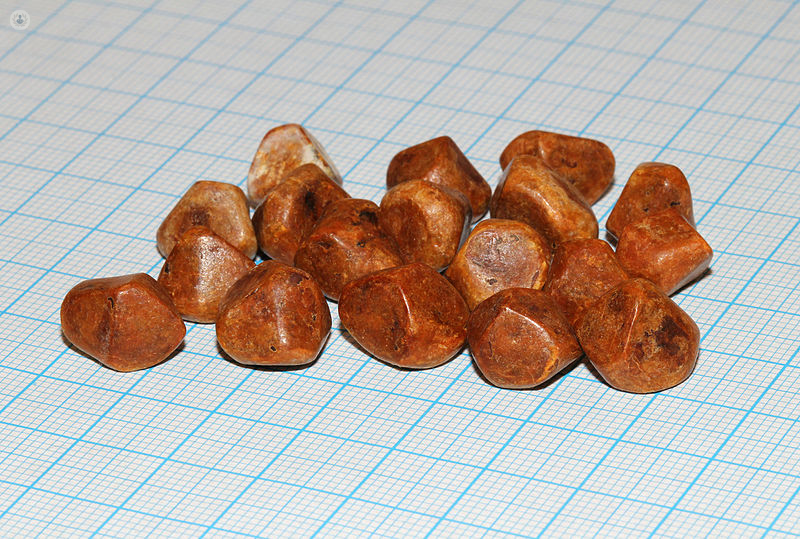All about gallstones
Autore:Gallstones are a problem that affects many people. We’ve all heard of them, but have you ever wondered what exactly gallstones are? Top surgeon Mr Tim Worthington is here to provide the answer, explaining the symptoms, causes, and possible complications of these painful little stones.

What are gallstones?
Gallstones quite literally are small stones that form from bile that's stored in the gallbladder.
What symptoms do gallstones cause?
Gallstones can cause pain, which tends to be situated in the upper abdomen. It can spread through to the back, up into the chest, and characteristically up to the shoulder. If stones move from the gallbladder into the bile ducts, they can also cause symptoms of jaundice, which is characterised by darkening of the urine, pale stools, and the whites of the eyes become yellow.
What causes gallstones?
In the western world, gallstones are generally made up of cholesterol and, to a lesser extent, bile and bile pigments. Because they're made of cholesterol, diet is often the cause of gallstones and people who have a high intake of saturated fat in their diet tend to develop stones. Stones can also be related to genetics, so gallstones often run in families, and I often see patients who have mothers, fathers and grandparents who suffered from gallstones in the past. Gallstones can also occur during pregnancy and pregnant women are particularly prone to development. They can also develop secondary to other medical conditions, such as Crohn's disease, where the absorption of bile from the gut is altered and stones form as a result of this.
Can gallstones cause complications?
Gallstones can cause a variety of complications. They can cause acute pain if they block the exit of the gallbladder and that can cause distension of the gallbladder and acute inflammation. In the long term, they can cause chronic inflammation due to the irritation of the gallbladder lining by the chemicals in the stones.
If gallstones move from the gallbladder into the bile ducts, they can cause symptoms such as jaundice, which is characterised by patients complaining of yellowing of the skin; they might notice that their urine becomes dark and their stools become pale. If gallstones block the bile ducts and cause an acute infection, patients can have a high fever and also develop jaundice.
If stones migrate further down the bile duct, they can block the pancreatic duct at the lower end of the bile ducts, which can cause acute pancreatitis. If a large stone were to move from the gallbladder into the gut, it can also cause intestinal obstruction characterised by acute pain and vomiting.
Finally, patients who've got long-standing gallstones that have been there for many years causing chronic inflammation, gallbladder cancers can develop as a result of gallstones.


